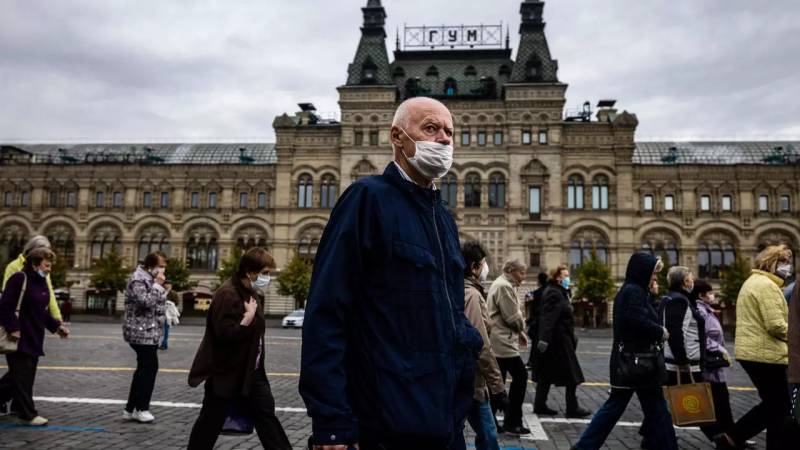Russia reports record virus cases but shuns new restrictions

Stay tuned with 24 News HD Android App

Russia registered its highest-ever number of new coronavirus infections on Friday after officials warned that tight restrictions could be set back in place if people continued to flout anti-virus rules.
Restaurants and bars in Moscow were bustling and many residents were ignoring orders to wear masks in public as nationwide infections surged in September, but officials stopped short of imposing new sweeping measures to slow the spread of the virus.
European leaders across the continent are scambling to amend virus regulations against the backdrop of a surge in new cases, and even Germany which was praised for its early handling of the pandemic has suffered a large increase in new infections.
But officials in Russia, which has the world's fourth-highest caseload behind the United States, India and Brazil, have so far dismissed the idea there is a second wave of infections or any need for a new lockdown.
An official government tally registered 12,126 new cases on Friday, surpassing the country's previous record set in May by several hundred cases.
"I'm really afraid that things will go back to how they were in the spring, that everyone will be quarantined and we won't be allowed to go to work," Vladimir, a teacher in Saint Petersburg who declined to give his last name, told AFP.
Moscow 'definitely not' following rules
Russia imposed one of the most severe nationwide lockdowns at the beginning of the pandemic.
Non-essential businesses were shuttered and Moscow residents only permitted to move freely with government-issued digital passes.
But most restrictions were lifted ahead of a large commemorative WWII military parade in June and a nationwide vote on amendments that pave the way for Russian President Vladimir Putin to remain in power until 2036.
Officials in Moscow, which is the epicentre of Russia's pandemic, have taken only minor steps to slow the spread of cases.
Mayor Sergei Sobyanin this month ordered the elderly and vulnerable to stay at home and told employers to keep at least a third of staff working remotely.
Mask-wearing is compulsory on public transport and inside shops, but some Muscovites are not convinced other residents of the capital are doing enough to stop the spread of infections.
"The city is making the necessary decisions. But it won't work without people responding to these measures, helping themselves and those around them," Sobyanin said Friday.
Tatyana Nemirovskaya, a 30-year-old PR specialist, told AFP that Muscovites are "definitely not" following the government's guidelines.
The head of Russia's consumer rights watchdog, Rospotrebnadzor, which is spearheading the country's virus response, warned earlier this week of "new measures" if the current rules were not followed.
The Kremlin said Friday that if the situation continues to deteriorate it will "require some actions, decisions" without specifying what they could be.
'Without masks, having fun'
But Putin's spokesperson placed the blame on Russians for surging caseload saying it was clear that "many people don't think it is necessary to take care of providing the safety of their health."
Standing next to a memorial to medics who have died during the pandemic in Saint Petersburg, Stella, a resident of Russia's second city said people had dropped their guard after mass restrictions were lifted.
"The rules were slightly eased and people calmly walked around without masks, having fun and everything began again," she told AFP.
Russia announced in August it had registered the world's first coronavirus vaccine, named Sputnik V after the Soviet-era satellite and several officials have said they volunteered for inoculation, including Sobyanin and Defence Minister Sergei Shoigu.
The vaccine, which is now undergoing testing on some 40,000 volunteers, had come under scrutiny over the small scale of its pre-registration trials.
Putin this week said "around 50 people" in his inner circle, including staff and family, had been vaccinated.
Russia has recorded a total of 22,257 fatalities from the virus, a much lower figure compared to other badly-hit countries.
